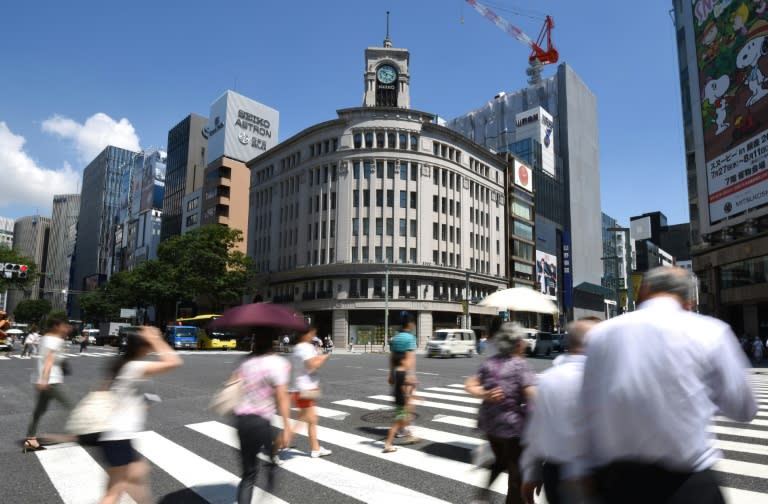Bank of Japan deflates with 'disappointing' stimulus
The Bank of Japan deflated investor spirits Friday with underwhelming tweaks to its giant stimulus plan that fanned worries its monetary policy arsenal is almost empty. The central bank did not expand a massive bond-buying programme -- a cornerstone of its years-long battle against deflation -- despite hopes for a one-two punch to boost the sluggish economy, after Tokyo unveiled a huge spending package this week. Japanese officials are under pressure as the fate of Prime Minister Shinzo Abe's bid to reignite the world's number three economy, dubbed Abenomics, looks increasingly gloomy. "The market had expected more than what the BoJ announced today, which triggered some disappointment," said Yosuke Hosokawa, head of the forex sales team at Sumitomo Mitsui Trust Bank. "This shows the ceiling for monetary policy." The BoJ's gathering was its first since Britain's shock vote to quit the European Union. The decision last month hammered financial markets and sparked a yen rally that is threatening corporate Japan's bottom line -- fanning concerns about growth. Government figures on Friday morning did little to soothe those worries, with inflation and household spending falling last month. Business confidence is sitting at its lowest levels since Abe swept to power in late 2012 on a ticket to fix the once-booming economy. The weak readings Friday will aggravate worries about second-quarter economic growth. Japan dodged a recession in the first three months of the year. The BoJ's plan is to double purchases of exchange-traded funds to about six trillion yen annually, and inflate a US dollar lending programme for Japanese firms doing business overseas. ETFs are securities linked to a share index or other investment, such as commodities or bonds, that trade like common stock. - 'Wishy washy' - But the central bank opted to leave its 80 trillion yen annual bond-buying programme unchanged, amid worries that expanding the scheme could spark volatility in Japan's debt markets. The BoJ also held off cutting interest rates deeper into negative territory, after banks hit back against the plan first announced in January. Negative rates are meant to encourage lending to people and businesses by effectively charging banks to keep excess reserves in the BoJ's vaults. But lenders have complained they are eating into their financial results. Some analysts said the BoJ likely felt compelled to take some kind of action Friday in a nod to the government. "The decision was rather wishy washy, as it was far below market expectations which have gone through the roof" in recent weeks, said Kohei Iwahara, an economist at Natixis Japan Securities. BoJ chief Haruhiko Kuroda said the bank was going to launch a "comprehensive assessment" of its own growth policies, without giving details. Some analysts saw the review as possibly signalling that further easing was in the pipeline -- a point Kuroda reinforced by saying the bank still had options to counter any downturn in the economy. "We have not reached the limit" in terms of policy moves, he told reporters Friday. Tokyo on Wednesday announced a whopping 28 trillion yen package aimed at kickstarting growth in the wake of the Brexit shock and a slowdown in emerging economies. Analysts questioned how much of it was immediate fresh spending, and the government has so far offered few specific details. Japan's spend-for-growth policies have set it apart from some of its rich nation counterparts, including Germany which has been reluctant to endorse them, seeing it as an ineffective way to stimulate the economy. Abe's growth plan -- a mix of massive monetary easing, government spending and red-tape slashing -- initially brought the yen down from record highs and set off a stock market rally. But promises to cut through red tape have been slower, and efforts to generate a sustained recovery have failed to take hold.





